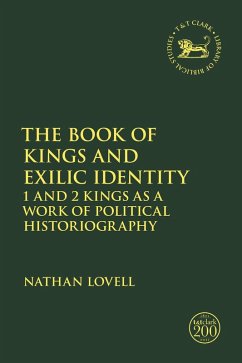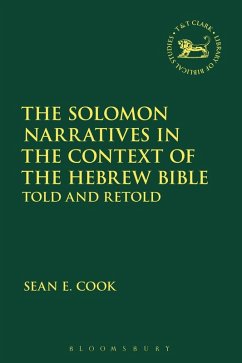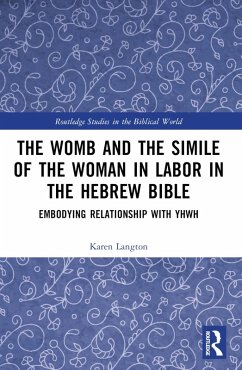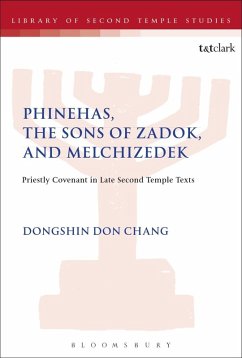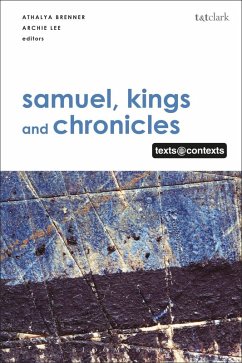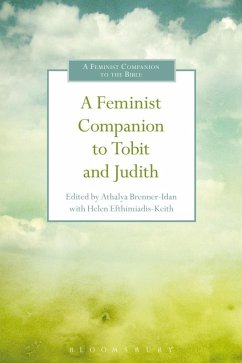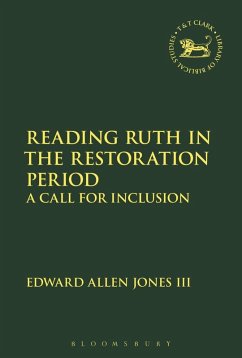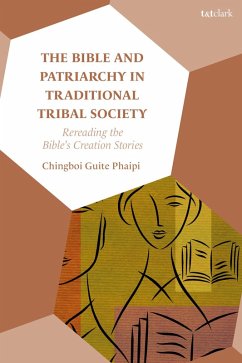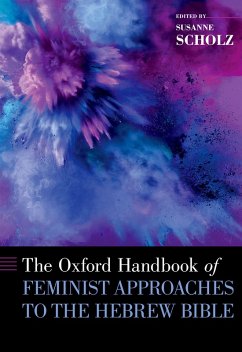
Women and Exilic Identity in the Hebrew Bible (eBook, PDF)

PAYBACK Punkte
14 °P sammeln!
Notions of women as found in the Bible have had an incalculable impact on western cultures, influencing perspectives on marriage, kinship, legal practice, political status, and general attitudes. Women and Exilic Identity in the Hebrew Bible is drawn from three separate strands to address and analyse this phenomenon. The first examines how women were conceptualized and represented during the exilic period. The second focuses on methodological possibilities and drawbacks connected to investigating women and exile. The third reviews current prominent literature on the topic, with responses from ...
Notions of women as found in the Bible have had an incalculable impact on western cultures, influencing perspectives on marriage, kinship, legal practice, political status, and general attitudes. Women and Exilic Identity in the Hebrew Bible is drawn from three separate strands to address and analyse this phenomenon. The first examines how women were conceptualized and represented during the exilic period. The second focuses on methodological possibilities and drawbacks connected to investigating women and exile. The third reviews current prominent literature on the topic, with responses from authors.
With chapters from a range of contributors, topics move from an analysis of Ruth as a woman returning to her homeland, and issues concerning the foreign presence who brings foreign family members into the midst of a community, and how this is dealt with, through the intermarriage crisis portrayed in Ezra 9-10, to an analysis of Judean constructions of gender in the exilic and early post-exilic periods. The contributions show an exciting range of the best scholarship on women and foreign identities, with important consequences for how the foreign/known is perceived, and what that has meant for women through the centuries.
With chapters from a range of contributors, topics move from an analysis of Ruth as a woman returning to her homeland, and issues concerning the foreign presence who brings foreign family members into the midst of a community, and how this is dealt with, through the intermarriage crisis portrayed in Ezra 9-10, to an analysis of Judean constructions of gender in the exilic and early post-exilic periods. The contributions show an exciting range of the best scholarship on women and foreign identities, with important consequences for how the foreign/known is perceived, and what that has meant for women through the centuries.




